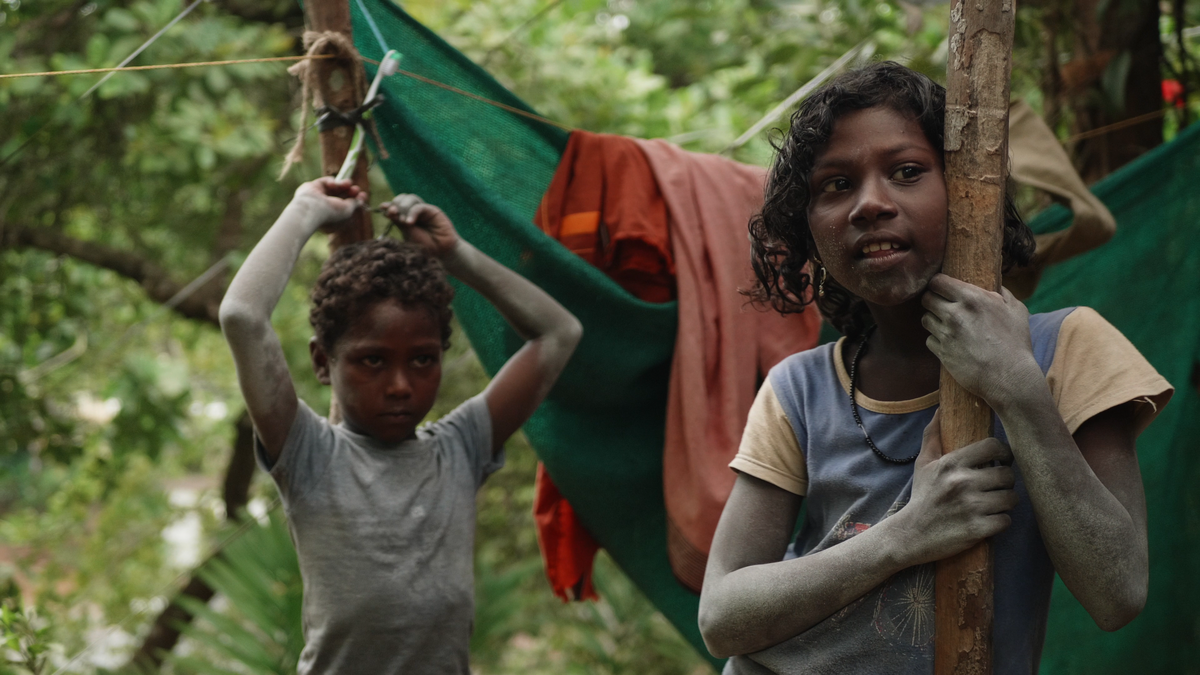
A still from the documentary âAneki Sambhavana Heinâ.
| Photo Credit: cue studio/YouTube
Aaralam Farm, Asiaâs largest tribal resettlement area, bordered by water bodies and bedecked in green cover, has resentment simmering within its residents. Jibeesh Usha Balanâs 32-minute documentary Aneki Sambhavana Hein is an honest effort at making known their unfair reality to the world.

Since 2006, more than 3000 tribal families have been rehabilitated in the Aralam Farm in Keralaâs Kannur, following protests led by activist C.K. Janu. Landless tribals from Kannur, Kozhikode and Wayanad, happy with the governmentâs promise of an acre for themselves, had relocated to the area with dreams of a decent living. More than a decade later, amid thinning hope, they are leaving the land for which they had once fought so dearly for.
Aneki Sambhavana Hein (Malayalam)
Director:Â Jibeesh Usha Balan
Duration:Â 33 minutes
Storyline:Â The documentary tells the story of the man-animal conflict and other woes that cripple the lives of the tribal residents of Aralam Farm, where they were rehabilitated by the Kerala government
The film, which grabbed an official selection at the IDSFFK and the Shades Short Film Festival, walks us along the farmâs forest paths, trailing through the daily lives of its inhabitants. The camera intently follows the characters as they introduce us to the village, its abandoned homes, the non-functioning school, the hard-to-access hospital with its only ambulance, the rivers coiling around the farm, the broken boundary walls near the forest, and the most pestering problem, the man-animal conflict, which has nipped in the bud, all hopes for a peaceful life.
After five in the evening, a resident says, it is unsafe to be outside their homes as elephants in the area are hostile to humans. In this man versus animal discord, 14 people have lost their lives so far. The government provides saplings for the people to cultivate. But wild boars, elephants and other creatures eat away the shoots and fruits, making farming impossible in the region.

Protests and calls for justice made the government build a wall near the forest, which the people say has created more nuisance than before, as now the beasts have begun coming in from unpredictable quarters. The elephants simply push the wall down and stomp over it.
Whereas, in a neighbouring locality, when one person from the general/unreserved category was killed by a tusker, a sturdy wall got built in that area, which the animals have not been able to pull down. âWe are Adivasis. What does it matter to the government if we are dead,â the tribal residents say to this.
Winner of Best Documentary Award by the Indian Film House, the film is a compelling watch. It begins slowly, giving the viewers time to drink in the scenic beauty, and gently presents the dilemma. From there onwards, the gravity of the situation seamlessly takes the lead, keeping the viewers glued to their screens. Jibeesh has let the people and their stories speak for themselves without interruption or scripted narration.
A light-hearted approach has been maintained throughout without playing down the severity of the situation, making the film an easy watch. The background score adds an eerie feeling to the visuals and aids the storytelling, though it goes over the top in some sequences. In many places, the subtitles also could have been better.
ALSO READ:Malayalam short film âThe Cycleâ explores the consequences of taking the easy route
As the film progresses, it becomes evident that more than the lack of basic facilities, what the community detests most is the feeling of alienation and the disappearing hope. People from outside are not permitted inside the farm, increasing their sense of isolation. Many have picked up their belongings and left the place. Many are about to. Most of those who stay do not have other options.
It feels too soon when the film ends in 32 minutes without an explicit conclusion, declaration, or demand. Since the situation gets portrayed quite effectively, spelling out what has to be done becomes unnecessary. The documentary ends with the residents saying, âWhichever government is in power, it is a foolâs game they keep playing. Our reality never changes. Tribals will always remain tribals.â
Aneki Sambhavana Hein is streaming on Cue Studio YouTube channel and on the website thecue.in
Published – September 12, 2024 04:24 pm IST
